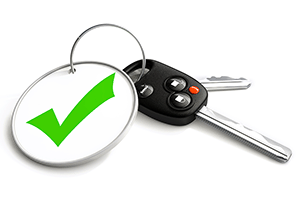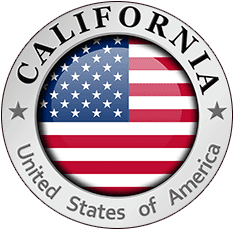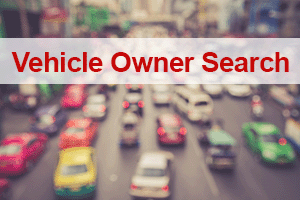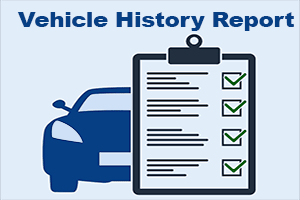
How to Run a California License Plate Number Lookup
In the vast state of California, vehicles are as diverse as the people. Each one carries unique identifiers: a license plate number and vehicle identification number. But what if you want to know more about a vehicle? A California license plate lookup can provide valuable insights. It can reveal a vehicle's history, registration status, and even if it's been in any reported accidents.
However, there are rules to follow. The Driver's Privacy Protection Act (DPPA) restricts access to personal information. Anyone is able to access vehicle information however, if you want to lookup vehicle owner information, you must have a valid reason to do so. This guide will walk you through the process of running a CA license plate number lookup. It will explain what information you can obtain, how to interpret it, and the legal restrictions to consider.
Understanding the California License Plate Search
Performing a CA license plate search involves retrieving information tied to a vehicle's license plate. Every plate is unique and no two are alike, which makes this is a solid option to lookup information about a car, truck, SUV, or motorcycle. A vehicle identification number (VIN) can also be used to access vehicle information however, the license plate is usually the most obvious identifier on a vehicle.
The process of looking up vehicle information serves a multitude of purposes. It's widely used by prospective car buyers to gather a vehicle's history. Sellers use it to assure potential buyers of the car's condition and history, and if there are any recalls or known safety issues. Insurance companies might check license plates for claims purposes. Moreover, the CA Highway Patrol and Police utilize these searches during investigations.
Common Uses of CA DMV License Plate Search
The Department of Motor Vehicles (DMV) is commonly used to renew vehicle registrations, transfer vehicle titles, and renew driver's licenses. They can also be used to access vehicle information and lookup the status of a vehicle. However, most of the services offered by the DMV are for people wanting to manage and maintain their own records. However, running a California DMV license plate search can be somewhat complicated if you are trying to access information about another vehicle. You must have a valid reason to access certain vehicle information according to the DPPA and state laws. These are in place to protect driver's personal information.
Here are some of the services that the DMV has to offer:
2). Car Accident or Damage Reports
3). Checking for Outstanding Recalls
4). Insurance Claims Processing
5). Law Enforcement Investigations
6). Drivers License Replacement
7). Obtaining Driving Records
8). Renew Vehicle Registration
9). Transferring Vehicle Titles
10). Verifying Vehicle Ownership
What Does a License Plate Lookup Include?
A California license plate lookup provides various pieces of data about the vehicle associated with the plate. Typically, it includes details on the vehicle history, specifications and options, registration status, and title information. The history might reveal past accidents or theft. It also identifies any recalls issued by the manufacturer depending on what information is available. Certain lookup services provide information on vehicle owners and lien details. However, personal information remains protected, adhering to privacy regulations. Other available data might include maintenance records or odometer readings, but this information is not always available. This information helps detect potential fraud or misuse.
The Format of California License Plate Numbers
The typical format for modern CA license plate numbers is a combination of numbers and letters. Standard plates usually have one digit, followed by three letters, and then three more digits (like 1ABC123). However, specialty or personalized plates may vary significantly in their format and have specialty characters. These custom plates might include unique combinations specific to the owner's preference. Understanding the format assists in conducting a more accurate search, however not every service allows to search with special characters. It ensures the correct entry of the plate number, avoiding mistakes during lookup processes.
Legal Restrictions and Ethical Considerations
Conducting a vehicle search comes with legal boundaries, which is important in staying compliant with the law. Numerous privacy laws restrict access to personal information. A California license plate owner lookup cannot be conducted without a valid reason, of which there are 14 valid reason according the DPPA. Violating these restrictions can lead to serious penalties, including fines and jail time. Unauthorized access can result in both legal and financial repercussions that are taken very seriously. Being aware of these guidelines are in place to make sure that people respect privacy and act within legal frameworks when utilizing such services.
Key Legal and Ethical Considerations:
1). Adhere to privacy laws
2). Use information responsibly
3). Only run lookups for permissible purposes
4). Avoid unauthorized access
The Driver's Privacy Protection Act (DPPA) Explained
The DPPA is a U.S. federal law that was enacted to protect personal information in DMV records. Enacted in 1994, its goal is to limit access to sensitive information, as a situation occurred where someone was stalked and killed by accessing personal information from the DMV. This law restricts the release of personal details without consent. There are a few exceptions exist for specific situations, and they are strictly regulated to make certain that protection and legal compliance is followed.
How to Perform a California License Plate Check
Performing a California vehicle license plate check is a simple process as long as you have the complete plate number. You cannot run a partial plate number. The next step is to choose a reliable vehicle record website with a valid security certificate. Then once you have found your resource, start by entering the complete license plate number and selecting the purpose of your lookup. It's important to make sure your search aligns with permissible reasons to stay compliant with legal standards. Here is an outline of the steps to preform your search:
1). Determine your purpose for the search.
2). Select a trustworthy service or DMV portal.
3). Enter the complete license plate number accurately.
4). Review the obtained vehicle information details.
5). Verify the information and use it within the legal guidelines.

California allows CA license plate lookups to obtain publicly available vehicle information. You may obtain a vehicle history report, view vehicle specs and options, and verify vehicle title status. Vehicle owner information is available, however, there are only certain permissible reasons via the state and federal DPPA laws.


California License Plate Owner Search

